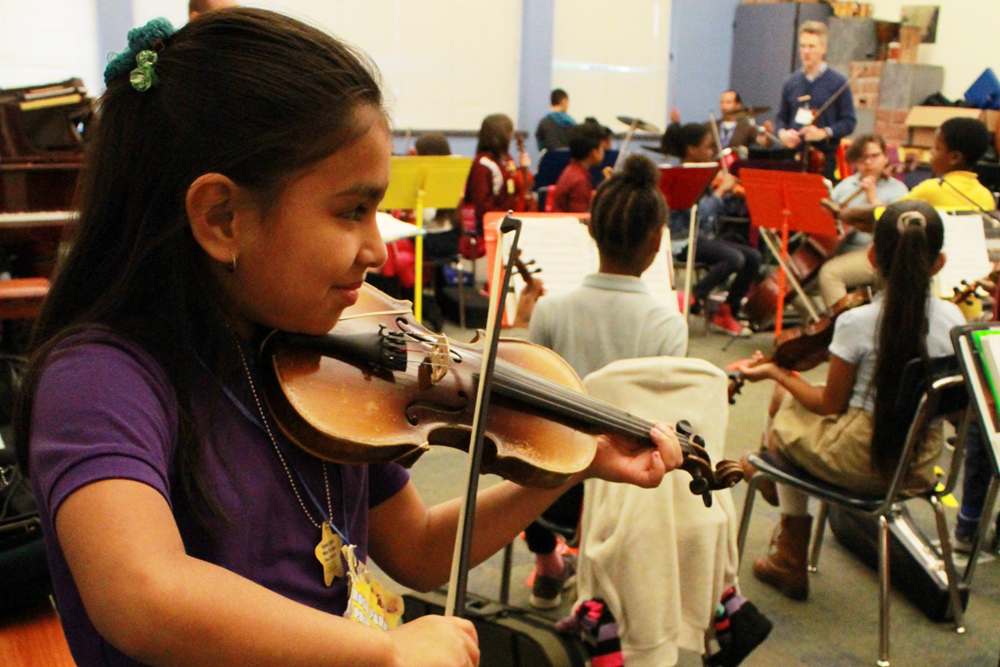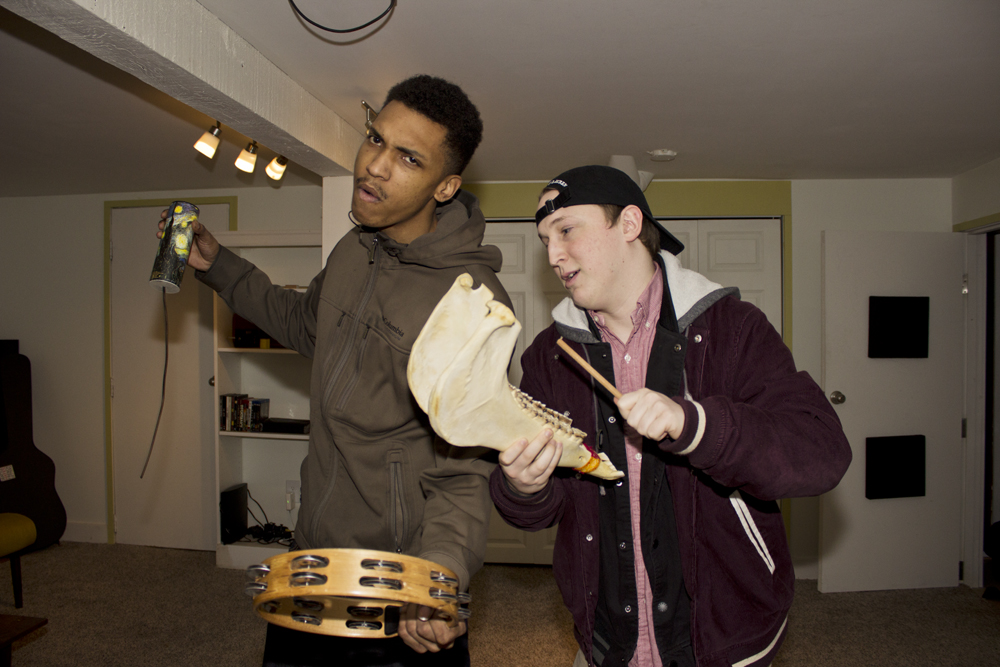I stumbled upon the Bravo youth orchestra by accident when a friend brought me to watch four members of the Oregon Symphony at a local restaurant fundraiser.
Four young Rosa Parks Elementary School students, and members of the Oregon Bravo music program, were on stage performing with the symphony members. When the performers took their bows, it was the confident and talented students that took the awe of the audience.
The Portland State student-run movie theater, 5th Avenue Cinema, will host a free performance by the Bravo program on June 3 at 11 a.m. The orchestra and chorus will perform pieces from around the world.
Seth Truby, executive director and co-founder of Bravo, will present information about the nonprofit organization’s progress and success at Rosa Parks Elementary via a multimedia guided lecture. The night will conclude with a Q&A session.
Bravo is inspired by a youth music program started in Venezuela in 1975 called El Sistema, which has influenced similar programs in more than 50 countries, and only came to the United States in 2009.
“One of the defining characteristics of El Sistema is a focus on ensemble or group learning,” Truby said. “The social aspects of making music together and the joyful accomplishment in teamwork are key lessons learned in El Sistema-inspired music education.”
Bravo is in its second year at Rosa Parks. It is an after school choir, choral and orchestra program that meets two hours a day, five days a week.
The program now has 60 second, third and fourth grade students participating, and next year the student body will include all continuing fifth grade students. They also teach an in-school violin class for kindergarteners and first graders.
Programs such as Bravo and El Sistema work under a goal of building community and skills that are considered fun, and on students teaching other students. The idea is that enjoying school will increase student attendance and success in all subjects as well as in life.
“Inviting a youth orchestra, one that is primarily composed by African American and Hispanic [and] Latino youth, allows our PSU students to see how music can be a vehicle for bringing positive social change and justice, and for challenging societal stereotypes about what identity groups perform orchestral music,” said Dr. Óscar Fernández, assistant professor of Spanish and comparative literature at PSU.
Fernández invited Bravo to PSU, and many of his students have already attended and written about one of the group’s concerts for his yearlong freshman inquiry class on race and social justice.
Lila Yang, a criminology major and one of Fernández’s students, has attended two Bravo concerts. She said Rosa Parks Elementary School is located in an area that is in danger of being gentrified, which is just one in a long list of challenges Bravo students may face, including poverty and discrimination.
Many of the students in Bravo have major life obstacles to overcome, and Bravo aids them by enriching their lives through music, community and education.
“Music can make a huge difference in a kid’s life,” said Yang, who grew up in a suburb of Portland. “Orchestra helped me [learn to] balance school, work and extracurricular activities.”
Yang said Bravo provides a safe outlet for the students, helps them build relationships with adults through the program and learn discipline and how to work toward something.
And, “music makes people happy,” Yang said.
I was invited by Truby to observe a Friday after school practice.
The practice began with the whole orchestra split into two groups. After 45 minutes of practice, those classes split into smaller sections with specific instrument tutoring. The day concluded with an end of the week personal song presentation where students got to share their favorite songs.
Throughout the day, some of the students found it difficult to stay on task but found their focus in the music. Some students introduced themselves to me and took pictures with my camera, while others posed and shouted that they were going to be a star.
As a nonprofit, Bravo is supported partially by donations and from the community. Their ability to expand to other schools will be influenced by the community’s engagement with their program.
Recently, Bravo secured funding for a second school site called Bravo Cesar Chavez.
“This program will focus on winds and brass, with the idea that the Cesar Chavez students and Rosa Parks string players will come together when they reach middle school to create a symphony orchestra with strings, winds and brass,” Truby said.
Before a new student at Bravo picks up an instrument for the first time, they make a paper mache version of that instrument to form a more personal bond with it and as an homage to the first El Sistema.
Truby said that when the El Sistema program first began in Venezuela, a remote village was preparing for their first day of music lessons, but the shipment of violins was delayed. The new teachers were faced with the prospect of a room full of children without instruments for two weeks.
“Instead, they gathered cardboard and paper mache and built their own orchestra,” Truby said. “The teachers worked together with their new students, helped by parents and family members, and it became not just a craft project but an exercise in building community.”






